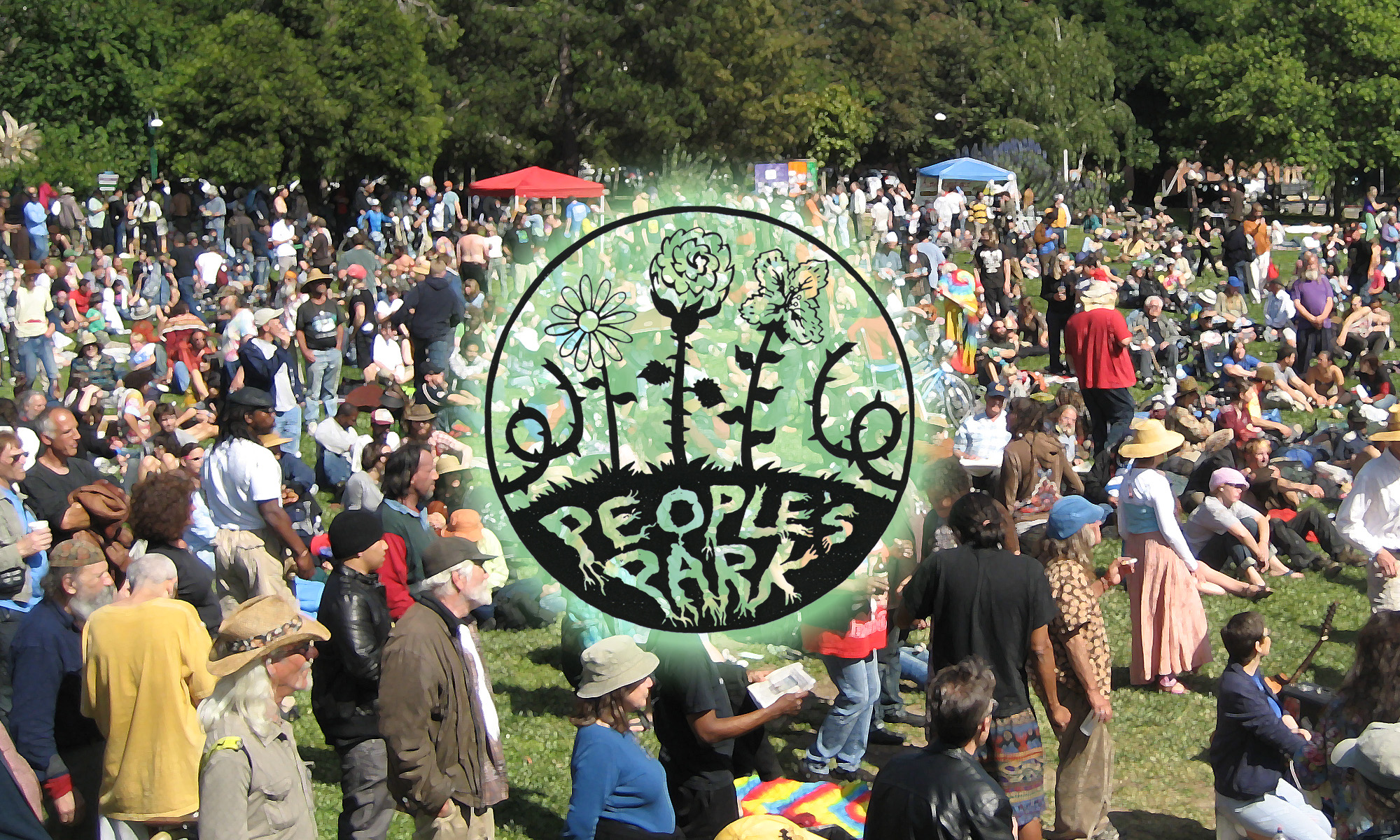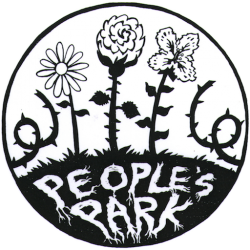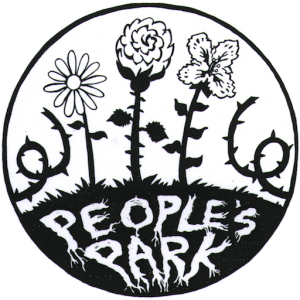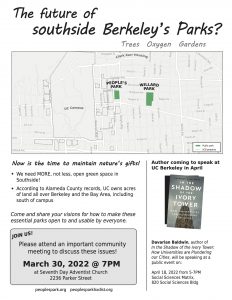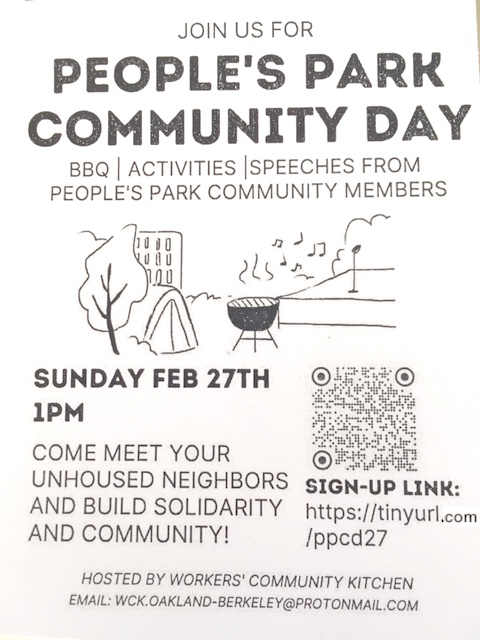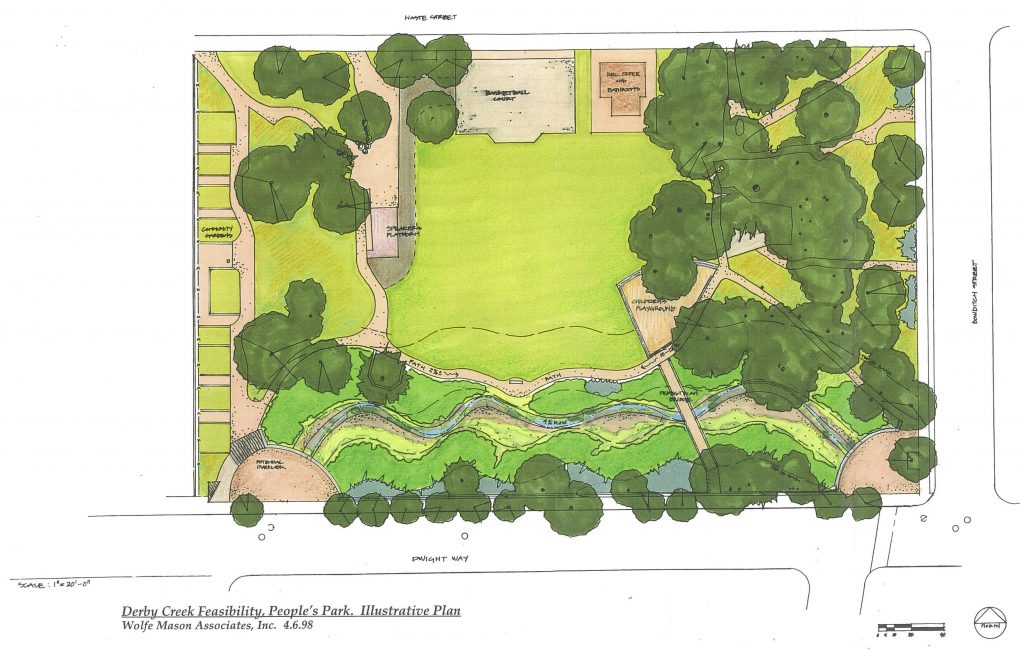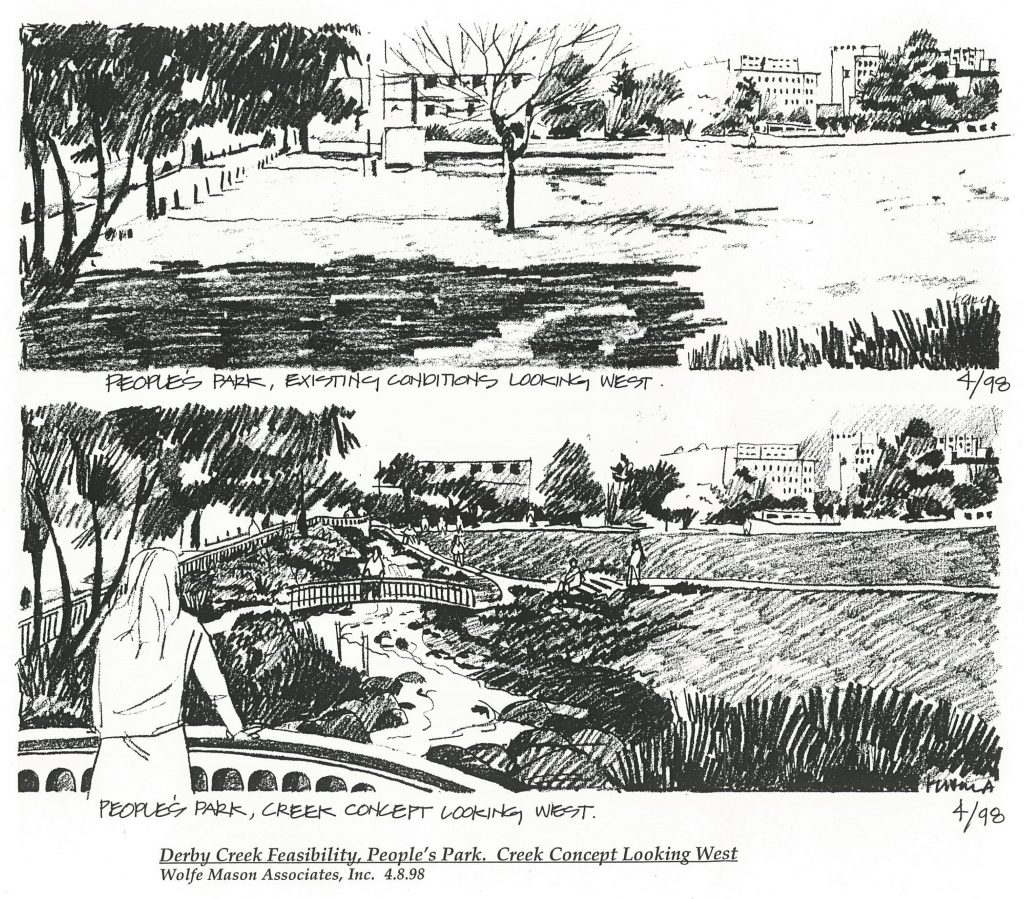From the People’s Park Council, June 16, 2022
Hi all,
We need you to call and email about the dramatic fire danger UC has created in the park over the past weeks.
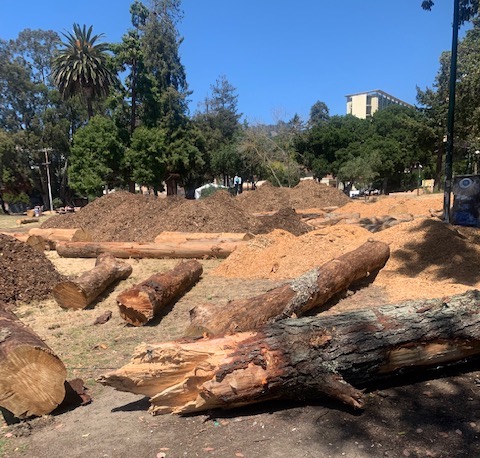
They started with many smaller piles of wood chips on the east side, as people were moving to The Rodeway Inn. Eventually those were mostly spread out by park users.
But then UC started dumping piles of wood chips in the grassy areas of the park, dumpload after dumpload, some mounds about 8 feet high and about as wide. Then the logs of formerly healthy, life-giving trees. We’ve had various counts of how many but around 60 or more is a reasonable count for now.
Monday and Tuesday 2 representatives from the City Manager’s office were out aggressively pressuring people to leave the park in the afternoon, including people who do not sleep in the park but hang out there.
Max from the People’s Park Council asked Okeya Vance Dozier how the city was involved in the dumping of flammable materials all over the park. Okeya said it is the UC doing this. So Okeya was asked the purpose of covering the lawn and was told it is to keep people from being able to put out tents. So this clarifies that the city has contact with UC and is being updated, and the city has aggressively pressured people to leave, threatening that they’d lose all their belongings if they did not submit to having them taken away. Indeed, UC has trashed tents and bedding, and personal belongings of many over the weeks. Meanwhile, while UC and the city was pressuring people to go to The Rodeway, telling them they’d have 18 months there, and services, the moment they were there they were being threatened with eviction after 3 months.
Monday and Tuesday this week UC covered many areas with logs. They’re strewn about.
Max has written detailed emails and made calls to different city fire department emails and phone numbers as well as the City Council saying the fire department and city need to stop this massive fire danger, especially as the weather forecast says to expect days with 77 degrees coming up.
The concern is spontaneous combustion and even though activists have been continuing to spread many of the chips from the more recent dumps (June 9, on), there remain massive piles which threaten not only the park and its flora and fauna, but the entire neighborhood as now there are so many wood chips in many areas of the park.
Some immediate actions you can take:
Tell people you know and get it onto Social Media. We’ll try to get some photos of the carnage up onto the website peoplespark.org as soon as that can happen. But people can go and take their own photos and send to people if we don’t get them up right away.
- Email fire@cityofberkeley.org and call 510-981-3473
- Email council@cityofberkeley.org
- Email manager@cityofberkeley.info, and call 510-981-7000 ovance-dozier@cityofberkeley.org and jjacobs@cityofberkeley.org from that office
- Email chancellor@berkeley.edu and call Carol Christ: 510-642-7464
- Email regentsoffice@ucop.edu
- Let us know if you emailed or called… info@peoplespark.org and if you got this info from a friend and would like to be added to our announcements list, please let us know
- If you use a cell phone, add yourself to the bulldozer alert by texting
SAVETHEPARK to 74121 and text your friends to do the same - Bring out a rake, gloves, a wheelbarrow, and friends to spread more of the wood chips so there is less probability of spontaneous combustion of the massive piles which are left. Make it a party and post photos to your Social Media
- The evening weather has been so pleasant. Come out to the park and enjoy it. This evening wouldn’t be a moment too soon. Bring your guitar, your singing buddies, and get up on the Free Speech stage to do your thing. Remember Joni Mitchell’s song with the lines, “They paved paradise, and put up a parking lot. With a pink hotel, a boutique, and a swinging hot spot. Don’t it always seem to go that you don’t know what you’ve got ’til it’s gone. They paved paradise and put up a parking lot.” Then there’s the line about putting all the trees in a tree museum (a bit like UC’s claim in the EIR that, they would be moving out oldest, biggest trees. Good luck with that)
- Now that those trees are dead, sure would be nice if someone with good equipment were to come out and make some of these logs into more benches and tables. Anyone know any wood sculptors who’d want to beautify the park with their art? We’ve also heard rumblings about many uses for the logs in defense of the park
** Our People’s Park tradition, from the inception, has been to take UC’s destruction and heal and support the park and its residents. They destroy, we beautify and think of ways to help do good for the neighborhood from building bathrooms, to getting rid of the offensive volleyball courts to leave the grassy area free for frisbee, picnics, dancing, hula hooping, musical circles. We reused the old-growth redwood UC had used for extra offense in building those unwanted courts, and over years also built picnic tables and benches, have done plumbing repairs when UC has not, have gardened, and as UC has always come in to destroy trees and other plants we respond by planting more and always, we put on anniversary and many other concerts and shows, workshops, rallies, and we help coordinate mutual aid. When we squatted a long-vacant UC-owned brownshingle rooming house across from Rochdale (Berkeley Student Co-op), UC’s response was to bulldoze it. Our response to that? We created another People’s Park annex, a lovely garden which survived at least a year before they demolished that, too.
Let 1000 Parks Bloom!
Keep your eyes and ears open, and we look forward to seeing you in the park.
People’s Park Council
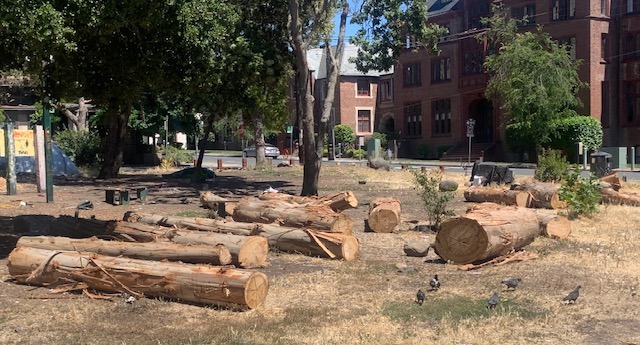
Logs and Woodchips in People’s Park – photo Elana Auerbach 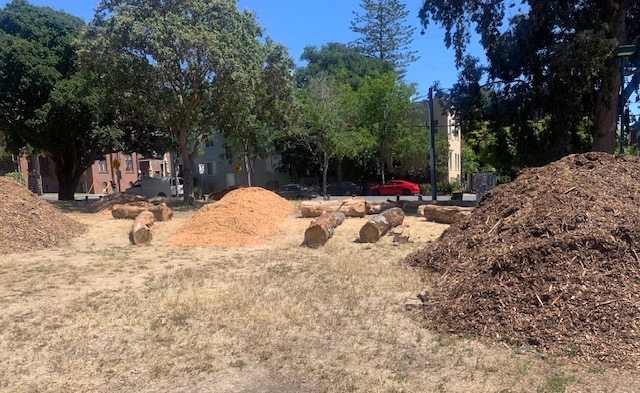
Logs and Woodchips in People’s Park – photo Elana Auerbach 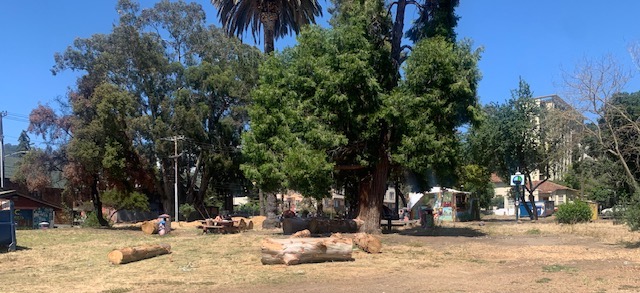
Logs and Woodchips in People’s Park – photo Elana Auerbach 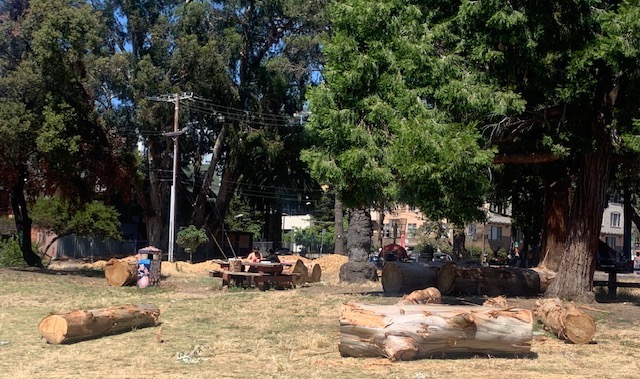
Logs and Woodchips in People’s Park – photo Elana Auerbach 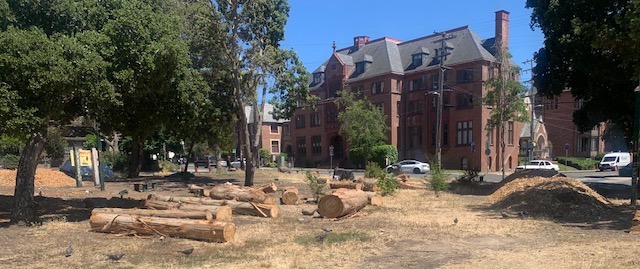
Logs and Woodchips in People’s Park – photo Elana Auerbach 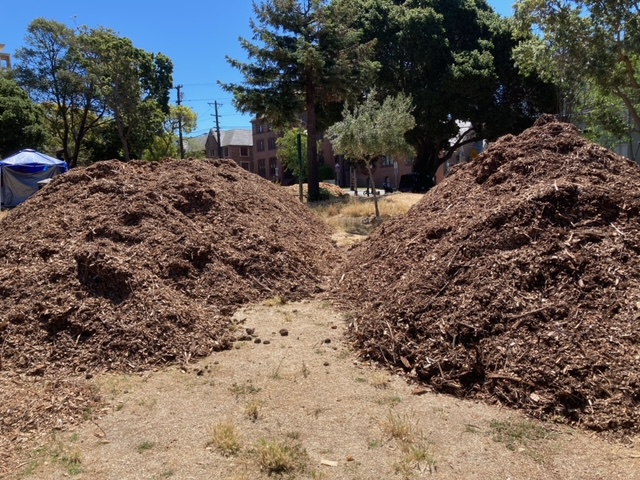
Logs and Woodchips in People’s Park – photo Kurt Abrams 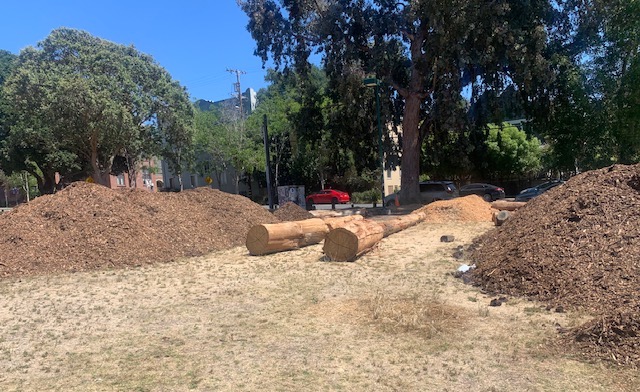
Logs and Woodchips in People’s Park – photo Elana Auerbach 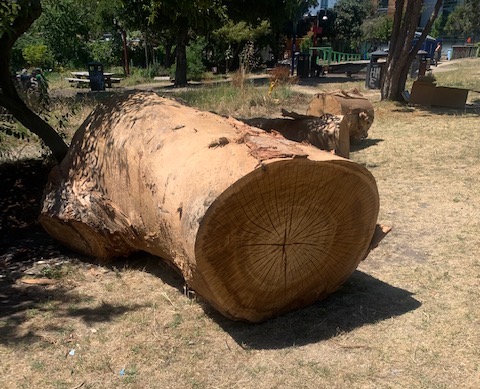
Logs and Woodchips in People’s Park – photo Elana Auerbach 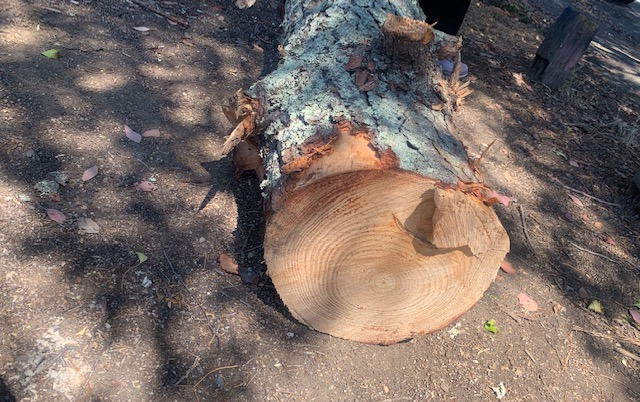
Logs and Woodchips in People’s Park – photo Elana Auerbach 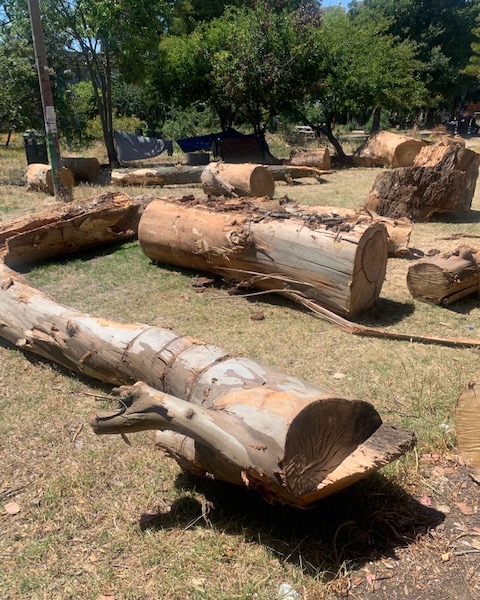
Logs and Woodchips in People’s Park – photo Elana Auerbach 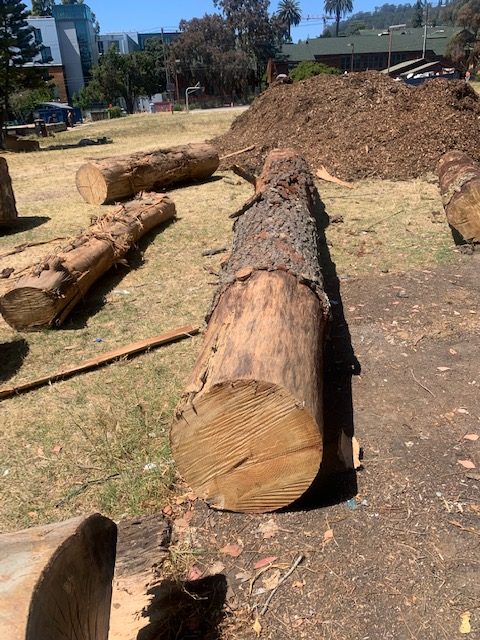
Logs and Woodchips in People’s Park – photo Elana Auerbach 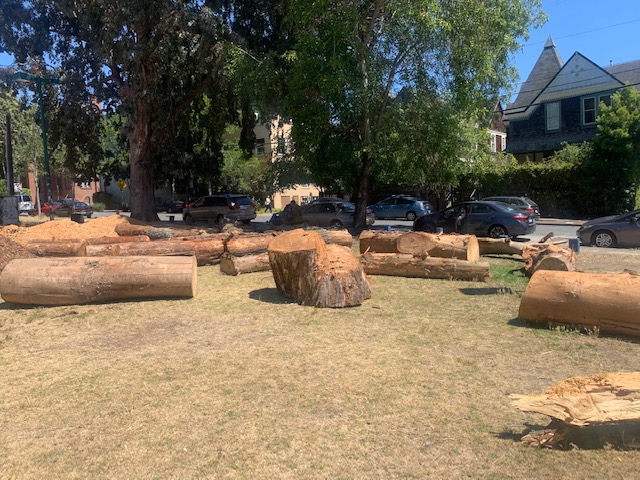
Logs and Woodchips in People’s Park – photo Elana Auerbach 
Logs and Woodchips in People’s Park – photo Elana Auerbach
